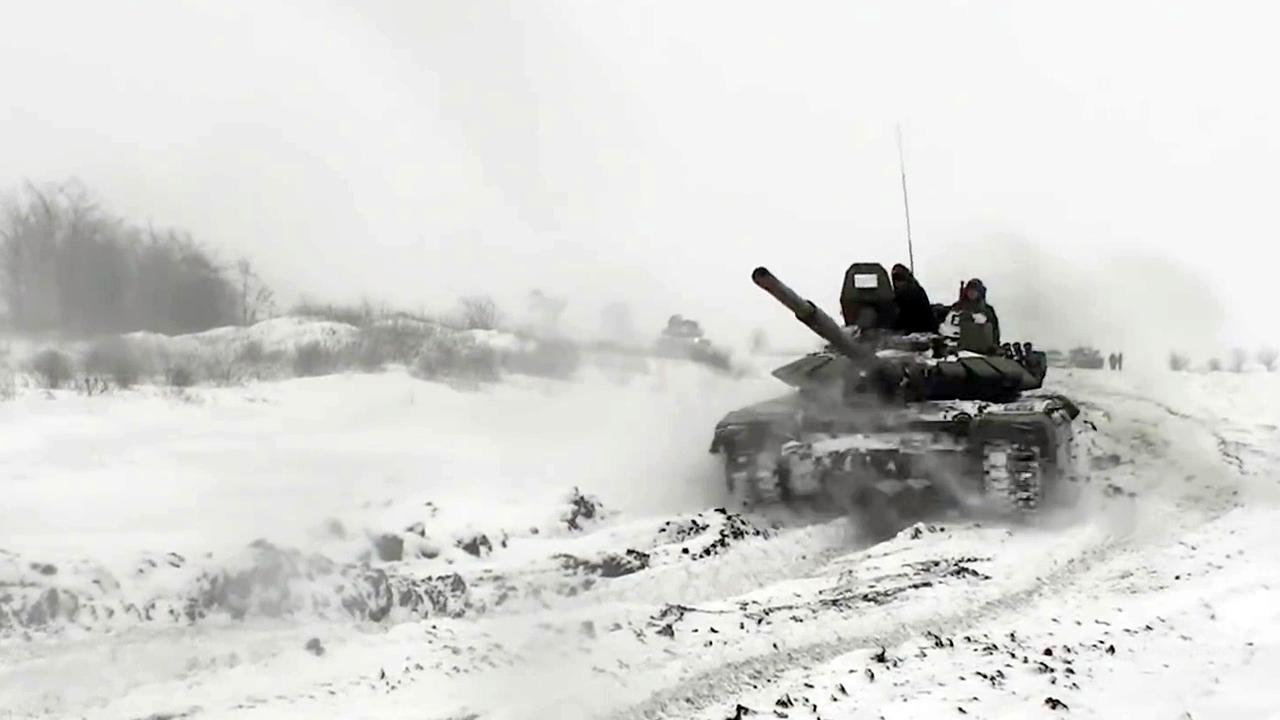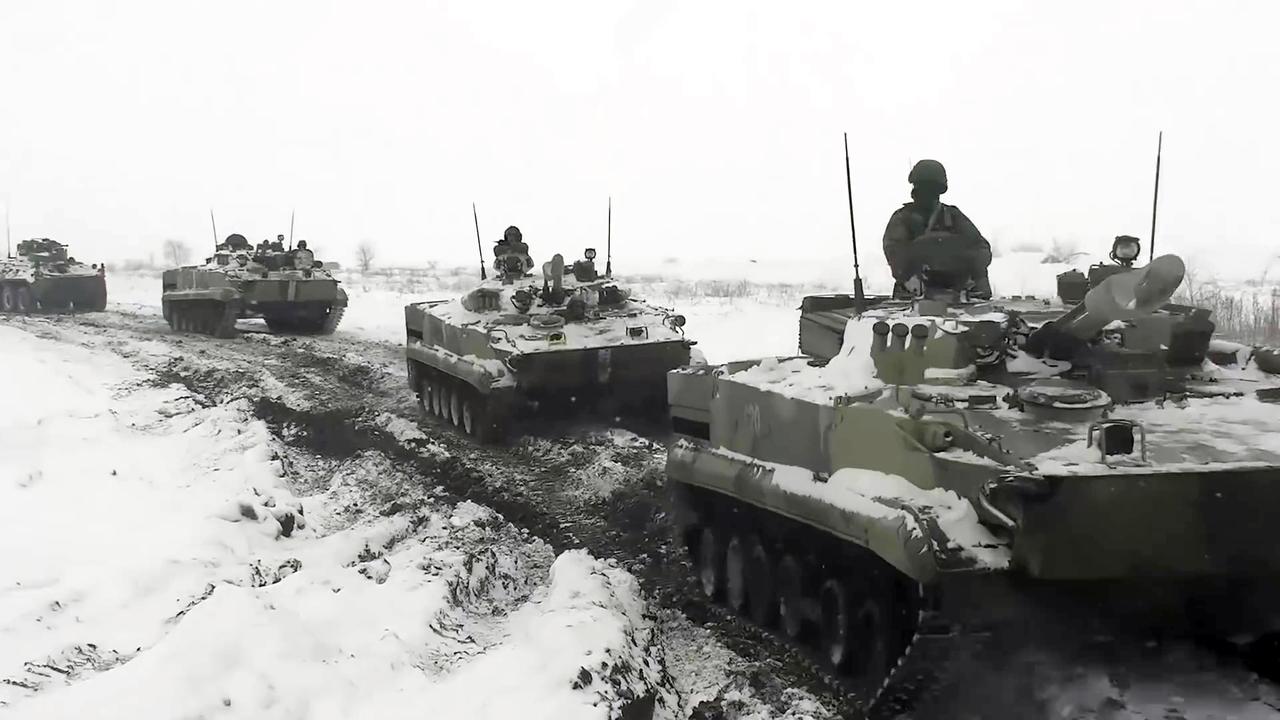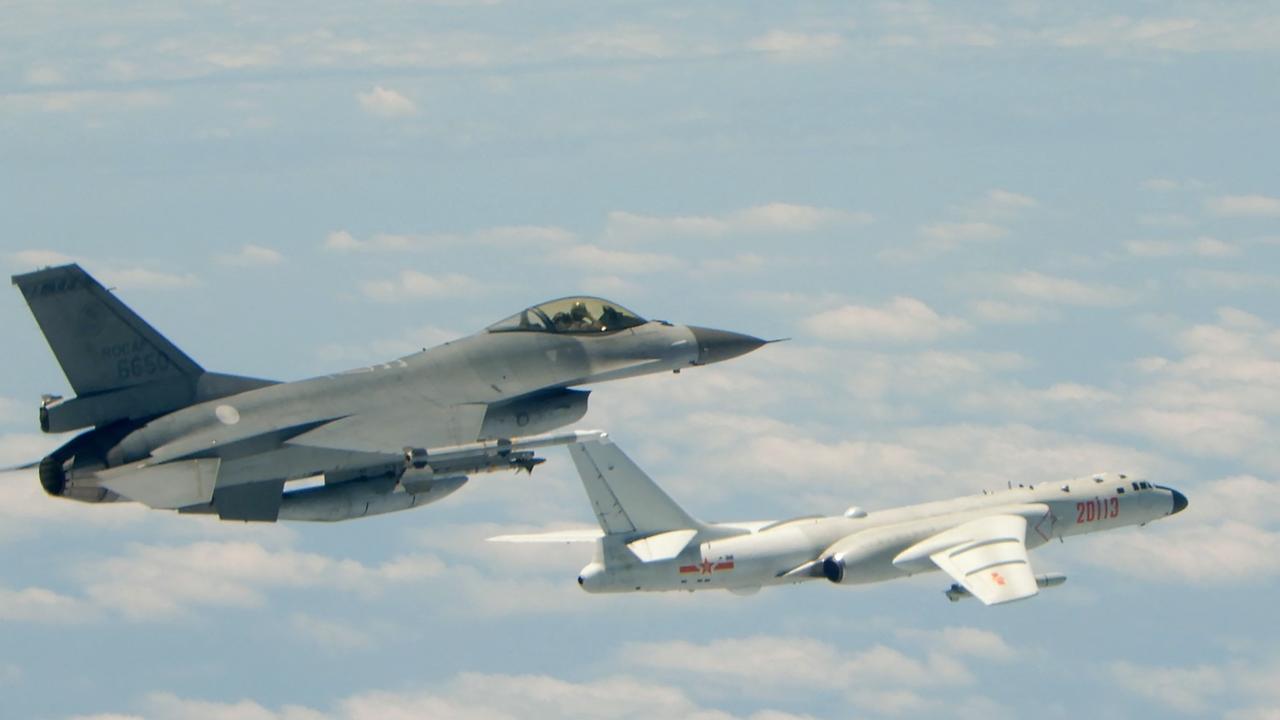How global conflict could make a difference to your money
Possible war involving powerful nations such as the US, Russia and China is making the world nervous, and can also impact Australians’ finances. Here’s how.

Intense talk of war right now is very scary. And dangerous.
Russia has massed troops near Ukraine’s border and sparked fears of an invasion, other European countries are reacting nervously to Vladimir Putin’s muscle-flexing, China is constantly flying warplanes near Taiwan, and on the financial front has been attacking Australia economically for more than 18 months.
I grew up during the Cold War and remember the dark clouds of the threat of nuclear holocaust, and feel sad that so many childhood dreams of world peace were smashed into brick walls as kids grew older, just like all generations of children before them.
War has obvious national and personal dangers, but also impacts financial markets, although not as badly as you might think.
During the 1990s Gulf War, the Iraq War from 2003 and the 20-year Afghanistan War from October 2001, stockmarkets rose rather than fell.
However, this time there’s not the mismatch of foes that allows Uncle Sam to steamroll across countries.

Russia and China are two of the most powerful military nations on the planet, both nuclear-armed, and both ideologically against the ways of the Western world.
Hopefully the huge size of the countries involved will prevent an unthinkable global catastrophe, but there could be skirmishes and attacks.
If we do see serious war, it’s likely to affect your finances, and here’s how.
YOUR JOB
You might think that a country at war employs more people to make stuff, but studies have found that military spending creates fewer jobs than education, health or energy spending.
Australia’s resources sector could benefit from rising demand, and create more jobs. I’ve read research saying that war lifts commodity prices, but it was published in 1939 so … yeah … maybe a little dated.
THE ECONOMY
If you thought the supply chain issues we’ve seen through Covid are tough, brace yourself for much worse. Russia is a huge energy producer, while China is the world’s factory and still Australia’s biggest trading partner despite shutting out many of our exports since 2020.
Nobody can accurately predict the economic impact of war where global giants are evenly matched economically, because nobody’s seen it before.
However, Covid has highlighted that humans are resilient in the face of adversity, and that governments will keep printing money to keep economies ticking over.

YOUR INVESTMENTS
We’ve seen that sharemarkets do OK once they get used to a war, but they can be extremely volatile amid early shocks.
Property prices also climbed during the wars of recent decades.
The best way to invest during wars is the same as always – diversify across a variety of asset classes and geographic areas to lower risk and smooth out returns, and keep an emergency cash buffer.
YOUR SUPERANNUATION
Your super is simply a collection of investments, which are typically more diversified than the investments you own outside of superannuation.
The long-term nature of super – at least four decades of investing – mean it should outlast any war.
YOUR HOME LOAN
If war sparks shortages and inflation, it could lead to higher interest rates.
However, financial shocks and stresses could also put the brakes on economies and rate rises.
Whatever happens, your mortgage interest rates will soon rise from their record-low levels, but don’t expect this to do too much damage unless you’ve recently borrowed big and beyond your means.
More Coverage
Originally published as How global conflict could make a difference to your money





